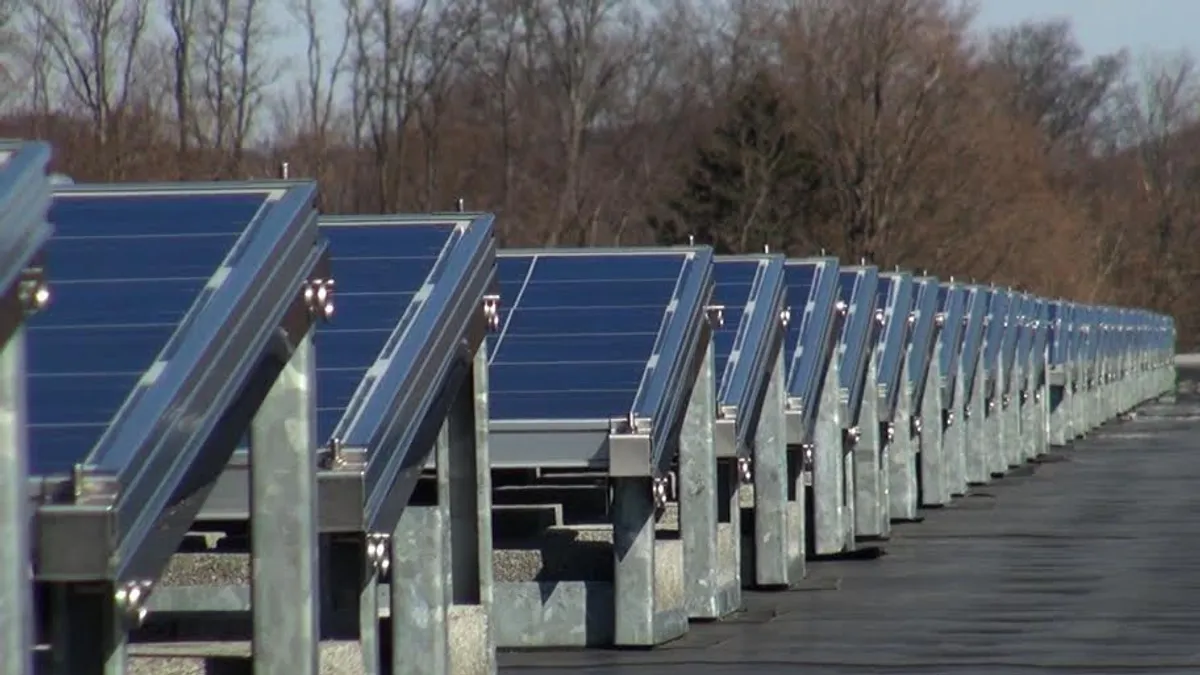Dive Brief:
- Utah Gov. Gary Herbert (R) this week signed the Sustainable Transportation and Energy Plan (STEP) act, a law backed by Rocky Mountain Power which aims to simplify rate recovery and develop a sustainable energy and transportation program, the Deseret News reports.
- Critics, however, say it gives the utility too much leeway with cost recovery, takes some oversight away from state power regulators, and will ultimately raise customer bills.
- A compromise was reached, giving the Utah Public Service Commission more oversight, allowing regulators discretion to approve more than $3 million in energy storage or solar incentives. However, it still allows for 100% of cost recovery, a measure critics say should have been more measured.
Dive Insight:
The STEP Act almost didn't make it to this point. Lawmakers initially rejected the measure but lawmakers did an about-face at the last minute and reconsidered the legislation, boting to pass it 46-26.
Critics of the STEP Act say it will ultimately raise rates and depress the state'ss solar market, while the utility argues the measures, such as simplified cost recover, allow it to more quickly modernize the state's grid.
"Our customers have told us that they want reasonably priced electricity but also want clean energy options," Rocky Mountain Power President and CEO Cindy Crane said, following the Utah House's decision to pass the legislation last month.
The law establishes a five-year pilot program to expand EV infrastructure, clean coal research, stopping the use of a power plant during inversions, solar incentives, economic development incentives and other programs, according to the utility.
According to Deseret News, critics of the law object to lawmakers altering the utility's energy balancing account, allowing for a 100% recovery of variable power costs, even though the law does not allow for rate increases absent PUC review.
"The biggest problem with that bill is Rocky Mountain Power was writing its own policy," consumer watchdog Claire Geddes told the Deseret News.
Solar critics note that the utility will be allowed to move $10 million out of the Utah Solar Incentive Program that's funded by ratepayers, and into the new pilot program. "The market is maturing and we are now at a time when we are providing incentives to our customers who are doing it regardless," Vice President of Regulation Jeff Larsen told the paper.















